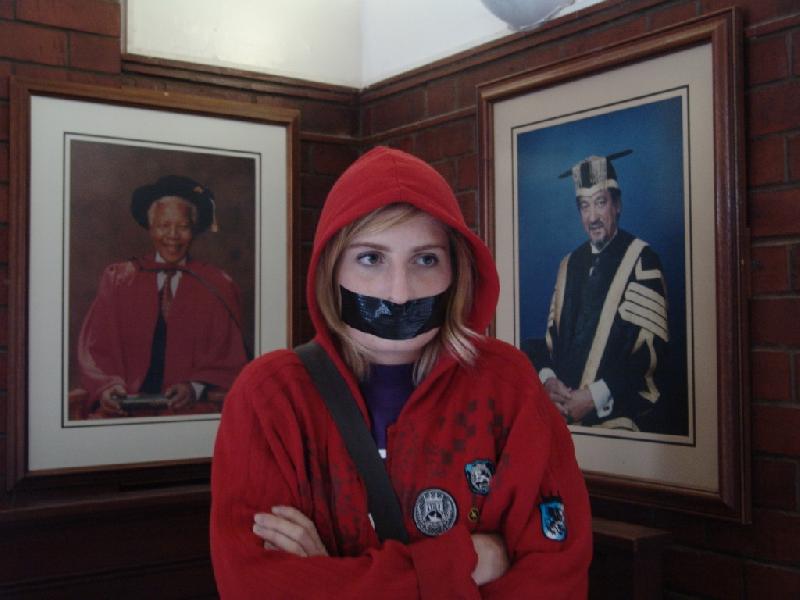
Friday marked the end of Anti Sex Crimes Week which played host to a number of guest speakers and different activities all lining up towards the day-long silent protest and march against sexual violence that took place on 23 April.
A total of 1091 people demonstrated their solidarity with women who speak out about sexual violence through the day-long protest and then the "take back the night" march. Those who participated were repeatedly reminded to "take back what was rightfully theirs, to speak out for themselves and for others who may not be ready or able to speak out yet".
Nomboniso Gasa gave the keynote address on 19 April entitled, "Our Bodies are Not Battlefields". Her paper spoke to patriarchy and its situation on women's bodies. It addressed the history of sexual abuse as a battlefield in times of conflict and rape as a war crime.
Nomboniso also interrogated the heterornomative assumptions on which the crimes against; lesbian, gay, bisexual/pansexual, and transgender people (LGBT), are grounded, including murder. She spoke to the notion of culture and self-discovery, which almost always use women's bodies in different ways.
Workshops were held throughout the week. Lindsey Kelland's seminar entitled a Phenomenological discussion on the harm of rape was held on Wednesday followed by Dr Rebecca Hodes, Deputy Director of the AIDS and Society Research Unit, who gave a workshop on Post Exposure Prophylaxis on Thursday 22 April.
The workshop gave those attending a solid understanding of what the Sexual Offences Act (2007) entitles rape survivors to in terms of health services and particularly post-exposure prophylaxis for HIV, and informed the group on where to access these services, and whether or not they are truly available in Grahamstown.
Organiser Larissa Klazinga said this of the week, "The week's activities brought together activists from Johannesburg and Cape Town with Rhodes staff and students. It allowed many women to speak publically, often for the first time, about their own violations and it provided a platform for men of conscience to reject masculinist norms and stand with women against rape.
“1091 students and staff lay down the gauntlet for the institution, their community and country, declaring that women have the right to safety, dignity and justice and demanding that these rights be realised."
